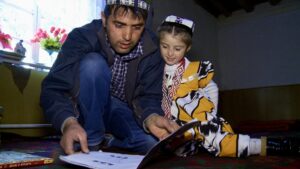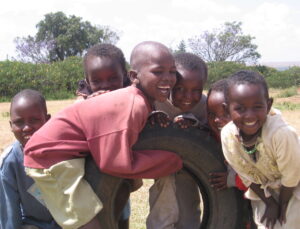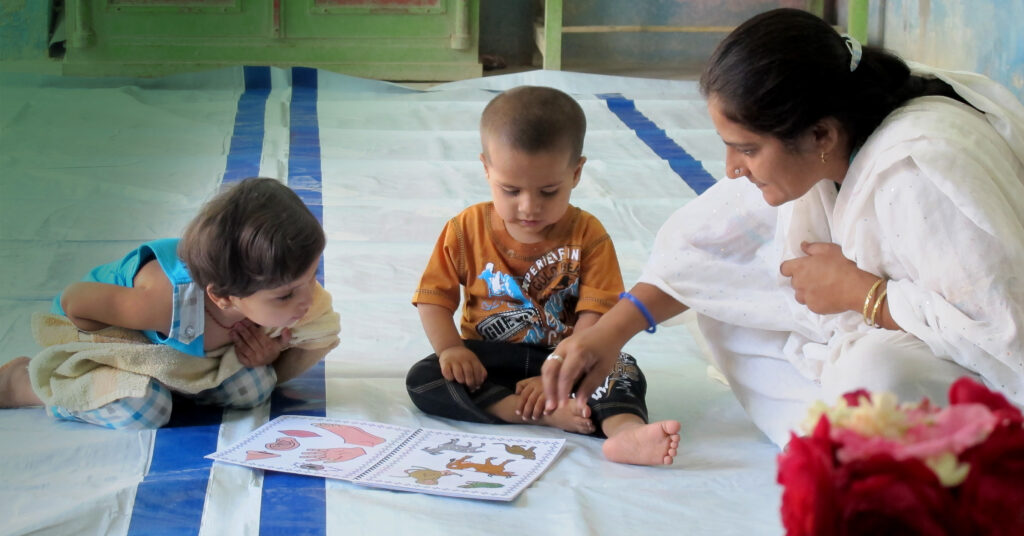Early child development resource continues to grow with global reach
It started as a way to reduce the gap between research and early childhood education.
Today, RRC Polytech’s Science of Early Child Development (SECD) initiative has impacted the work of early childhood educators (ECEs), both here in Canada and on a global scale.
“Over the past few decades, there has been an explosion of neuroscience research that has increased our understanding of early brain development,” says Dr. Rob Santos, Chair of the Research department in the College’s School of Health Sciences and Community Services.
“These discoveries show that how a child’s brain develops, even before birth, is influenced by the environment and experiences surrounding the child, setting the foundation of lifelong health, learning and wellness.”
SECD began as a partnership between RRC Polytech and the Atkinson Centre at the University of Toronto. Later, the Aga Khan Development Network provided funding to the College to adapt SECD and create an international edition.
The resource is what’s known as a “dynamic knowledge mobilization initiative” — essentially, bridging complex research on understanding early brain development and using that research in resources and courses that professionals and students can easily understand.
The SECD initiative includes four online “living textbooks,” which use a multimedia approach to share information. They include expert interviews, images, slideshows, websites, readings, questions for reflection, interactive games, activities, and videos of children, parents and caregivers.
In each of the modules, there’s an overview, a research section and links to practice that help make research practical for early childhood education students and anyone working with children.
Typically, it can take a number of years before research findings have an impact on practice. However, SECD has proven to be a flexible initiative that is regularly updated to keep resources current, engaging and informative.
 The initiative — which originated with CD-ROMs — has kept up with advancing technology, with plenty of help from the College’s Emerging Media and Production department, whose members have played a big role in populating its multimedia archive.
The initiative — which originated with CD-ROMs — has kept up with advancing technology, with plenty of help from the College’s Emerging Media and Production department, whose members have played a big role in populating its multimedia archive.
Videos are now streamed, many with captions available in multiple languages. The SECD resources, including interactive learning and review activities, can be viewed on computers, tablets and phones.
“The quality of SECD videos and interviews has been a game-changer and is one of the features that is widely valued,” says Santos.
Over the last few years, a key milestone for SECD has been to expand open access to the resource. In the past, resources were purchased by students or faculty, but recently, provincial and territorial governments have reached out to make them available.
British Columbia was the first province to sign on for open access in 2016, followed by Manitoba in 2018. In the past year, SECD has become available in Newfoundland and Labrador and the Yukon.
Self-study professional development modules have also been developed recently and will be available to in provinces and territories offering open access to SECD. These short modules provide a guided, interactive way to explore specific topics within the resource.
 Another recent expansion is a partnership with the government of the Northwest Territories to co-create a professional development workshop series for their ECEs using SECD.
Another recent expansion is a partnership with the government of the Northwest Territories to co-create a professional development workshop series for their ECEs using SECD.
Faculty from RRC Polytech filmed interviews with residents in October 2022, traveling from the southern part of the territory all the way up to Tuktoyaktuk. They are now creating final materials to be used for training throughout the territory.
Overall, SECD has grown significantly since its inception, which dates back nearly 25 years and was inspired by the work of Canadian researcher Dr. J. Fraser Mustard, an expert on the socioeconomic determinants of human development and health, and others with the Canadian Institute for Advanced Research.
Early on, Mustard inspired and challenged people to translate research findings in a way that would allow those who work with children and families to understand and apply this information.
Staff and faculty at RRC Polytech shared his pervasive attitude, coming together to collaborate on an initiative that is now making its impact around the world, and has been received positively by the ECEs it was initially created for.
Survey responses show participants find SECD to be engaging, informative and helpful in their work — feedback that proves quite validating for the research team at the College.
“By empowering science into practice across Canadian provinces and territories, and around the world, for this most pivotal time in the life course — from the prenatal through the preschool years — the College’s SECD team and partners are literally helping communities to stay in front of what’s ahead for generations to come,” says Santos.

